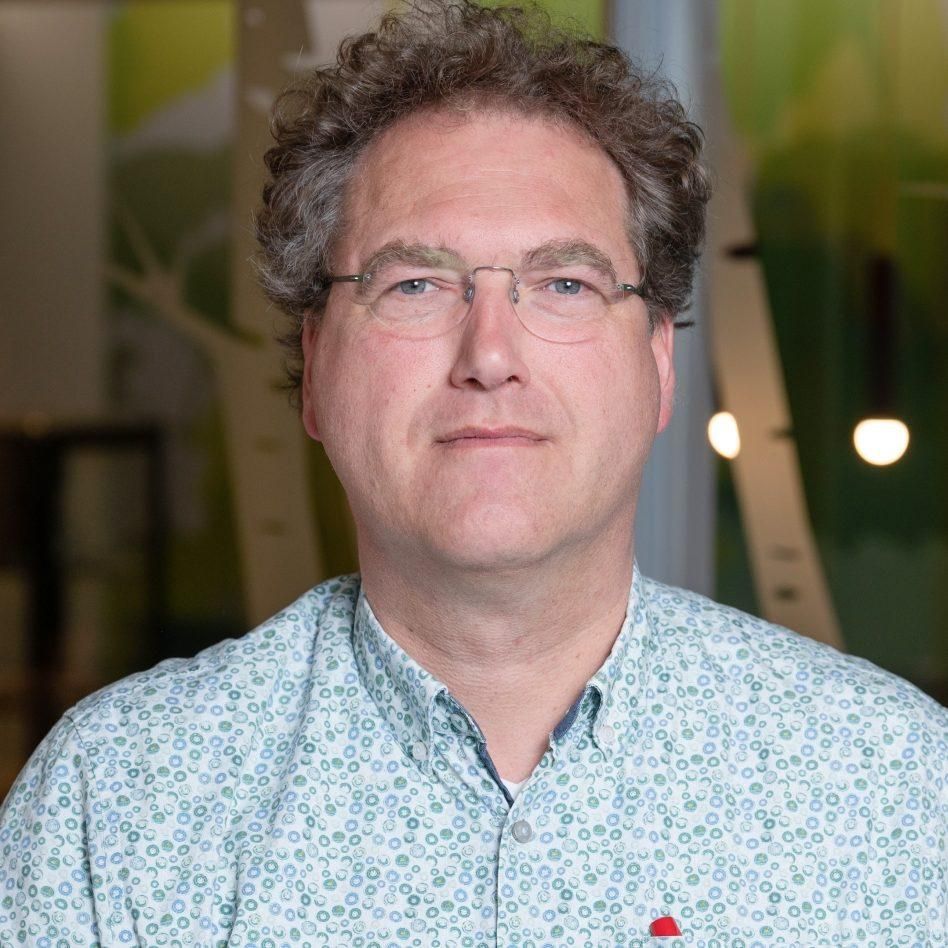News & Updates
‘It radiates the pleasure of the responders!’
Hugo Hardeman is 53 years old and a GP in Herveld-Andelst, a village in the Betuwe, in the middle of the no man’s land between Tiel, Arnhem and Nijmegen. He is a practice owner and, together with five other GPs, takes care of people in the neighbourhood. Through a colleague, he came into contact with Prisma.

Photographer: Astrid Pekel
‘It was sometime in 2020,’ Hardeman says. ‘That’s when I started working with the consultation platform Prisma. Before that, I used Twitter occasionally for contact with specialists. Sometimes one-on-one, but not necessarily for discussing case histories. That was more because I enjoyed learning from others that way.’
Discovered a new clinical picture
‘Via Twitter, for instance, I learned about the syndrome ACNES, in which an abdominal nerve is trapped. A surgeon from Drachten shared something about it. And I thought: Look, now I have suddenly discovered a new syndrome through a medium like Twitter. That made me curious about other knowledge-sharing initiatives like Prisma,’ Hardeman says. ‘So I immediately started posting cases when I had access.’
Not disturbing
‘Questions that I ask on Prisma are mainly questions that don’t feel that complicated: but rather often those little things that you just don’t know, which prevent you from going any further,’ Hardeman says. ‘You can call a doctor in the hospital for that, but then you disturb them again. And that feels so unnecessary, because it’s not a question that can’t wait.’
‘If you call a surgeon, for example, with a simple, embarrassing question and you then hear an OR beeping in the background: that is so uncomfortable. But searching the internet endlessly is not efficient either. Just putting such a question on Prisma is then very nice. You know you are not disturbing anyone, and you get an answer very quickly. I usually get an answer to my question within half a day. Sometimes with links to articles for more background information,’ says Hardeman.
Blind spot
‘I ask in Prisma, for example, whether additional diagnostics are needed for a case I have my doubts about. I often have suspicions, but are they correct? I then use it as a kind of checklist. Have I thought of everything? Or do I have a blind spot?”It’s nice that I get multidisciplinary answers, when a question is at the interface between two specialisms. I don’t always want to hear only a yes or a no, but like to see different starting points highlighted, so that I myself learn something from the case. This is pleasant, but also efficient for when I come across a similar case again.’

Curiosity
‘Out of curiosity, I have also been reading a lot of what fellow GPs are posting lately. It’s fun to read and learn from what others have to contribute. Before I post a new case myself, I have to remind myself to check the knowledge base first to see if the question has been asked before. I think in 50% of cases I can already find my answer there. Now I have yet to discover the Prisma knowledge clips, which also seems like a fun addition, but I haven’t made time for it yet.’
Fun
‘Responders in Prisma are, I think, selected for the fun they have in it,’ laughs Hardeman. ‘Because that really radiates from them. You get answers to your case from enthusiastic knowledge sharers and that feels pleasant.I only use a teleconsult when I want to discuss something about a patient who is already known to the hospital. Then fine-tuning something with the specialist is easily done via teleconsult. For general things, Prisma is quicker and often more informative for us as GPs, in my experience.’
Referral?
‘Sometimes you have a patient with whom you are in doubt about whether to refer or not. So I sometimes use Prisma strategically in my communication towards the patient,’ Hardeman explains. ‘Then I say that I will consult with specialists at Prisma whether referral would be useful. Of course, I will then explain that Prisma is a safe platform.”That way it prevents many referrals and I can also reassure the patient with a solid answer. But sometimes it also works the other way round and I decide to refer precisely as a result of an answer in Prisma after all, when I myself suspected it was unnecessary. That extra support when in doubt: that’s nice.’
Prisma is currently only available for GPs, specialists and RGPOs that are based in the Netherlands.